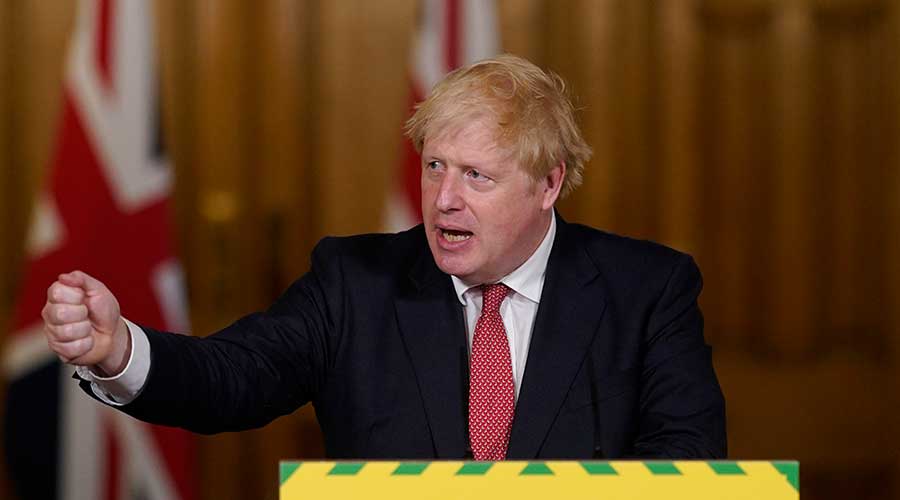Boris Johnson told the Commons on Monday that he would not resign as Prime Minister after senior civil servant Sue Gray delivered her much anticipated and critical report on “Partygate”.
“I am going to get on with the job,” Boris pledged, after first apologising for rules that had been broken at 10 Downing Street and promising to carry out a radical reform of how his office was run.
Boris, who is supposed to fly to Ukraine and to talk to President Putin by phone, said: “I will be saying more in the coming days about the steps we will take to improve the No 10 operation and the work of the Cabinet Office to strengthen cabinet government and to improve the vital connection between No 10 and parliament.
“Mr. Speaker, I get it, and I will fix it. And I want to say to the people of this country, I know what the issue is, whether this government can be trusted to deliver.”
He had delivered on Brexit and on vaccines: “And I can tell you I will bring the same energy and commitment to getting on with the job, to delivering for the people and to our mission to unite and level across this country.”
Aware that Boris won an 80-seat majority at the last general election in December 2019, the Labour leader, Keir Starmer, appealed to Conservative MPs to force the Prime Minister to step down.
Starmer said the British public “think the Prime Minister should do the decent thing and resign. Of course, he won’t because he is a man without shame ... He’s damaged everyone and everything around him along the way. His colleagues have spent weeks defending the indefensible, touring the TV studios, parroting his absurd denials, degrading themselves and their offices, fraying the bond of trust between the government and the public.
“There are members opposite who know that. The question they must now ask themselves is what are they going to do about it?…The eyes of the country are upon them. They will be judged by the decisions they take now.”
Gray’s report was an edited one because she had to leave out material that might be used by Scotland Yard to pursue its separate investigation.
As a preamble Gray said: “Unfortunately, this necessarily means that I am extremely limited in what I can say about those events and it is not possible at present to provide a meaningful report setting out and analysing the extensive factual information I have been able to gather.”
After investigating 16 events in Downing Street and other government departments held over a 20-month period, Gray found four did not reach the threshold for the police to investigate. But Boris may find himself in difficulty over a gathering held in his private Downing Street flat on November 13, 2020.
In her report, Gray said: “At least some of the gatherings in question represent a serious failure to observe not just the high standards expected of those working at the heart of government but also of the standards expected of the entire British population at the time.
“Against the backdrop of the pandemic, when the government was asking citizens to accept far-reaching restrictions on their lives, some of the behaviour surrounding these gatherings is difficult to justify.
“The excessive consumption of alcohol is not appropriate in a professional workplace at any time.
“Some staff wanted to raise concerns about behaviours they witnessed at work but at times felt unable to do so. No member of staff should feel unable to report or challenge poor conduct where they witness it.”
It remains to be seen how Tory MPs will react in the weeks to come. The chancellor, Rishi Sunak, made a point of sitting next to Boris in the chamber. The foreign secretary, Liz Truss, who is openly jockeying for the top job, also sat on the front bench.
One Tory MP, Andrew Mitchell, said Boris “no longer has my confidence”.
The first Tory to attack Boris, though, was the former Prime Minister Theresa May whom Boris had ousted.
She basically questioned Boris’s integrity by asking: “The Covid regulations impose significant restrictions on the freedoms of members of the public. They had a right to expect their Prime Minister to have read the rules, to understand the meaning of the rules, and indeed those around him to have done so and to set an example in following those rules. What the Gray report does show is that No 10 Downing Street was not observing the regulations that he had imposed on members of the public. So either my Hon friend had not read the rules, or didn’t understand what they meant or didn’t think the rules apply to Number 10. Which was it?”










